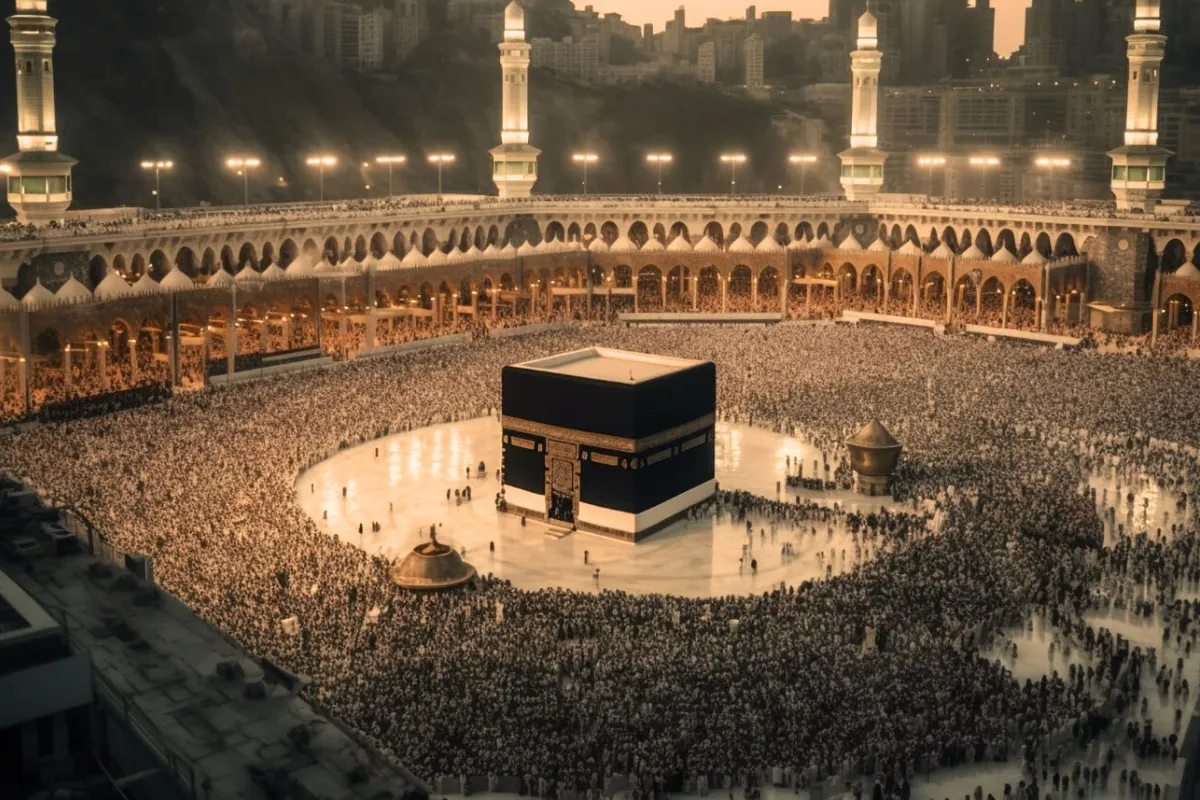More than 550 pilgrims died at this year’s Hajj, according to reports released by diplomats on Tuesday. This underscores how difficult the journey is, particularly in the sweltering heat. Once again, the oppressive heat has been a major factor, since this year’s pilgrimage took place in extremely hot weather.
High Death Toll Among Egyptians
At least 323 Egyptians died out of the 550 total, primarily from heat-related illnesses, according to two Arab ambassadors who oversaw their nations’ reactions. One ambassador stated that all Egyptian deaths were due to the heat, with the exception of one Egyptian who passed away from wounds received in a small crowd crush. The hospital mortuary in the Mecca neighbourhood of Al-Muaisem verified this number.
Increase in Jordanian Deaths
The ambassadors also mentioned that 60 Jordanians had passed away, which was more than the official toll of 41 that Amman had earlier announced. According to an AFP count, with these additional numbers, the total number of deaths recorded by different nations has reached 577. One of Mecca’s biggest mortuaries, Al-Muaisem, announced 550 fatalities in all.
Impact of Climate Change on Hajj
The Hajj pilgrimage, a vital practice in Islam, requires all Muslims with the means to perform it at least once. However, climate change has increasingly impacted the pilgrimage. A Saudi study published last month indicated that temperatures in the area where rituals are performed have been rising by 0.4 degrees Celsius (0.72 degrees Fahrenheit) each decade. On Monday, temperatures soared to 51.8 degrees Celsius (125 Fahrenheit) at the Grand Mosque in Mecca, as reported by the Saudi national meteorology center.
Heat Stress and Health Challenges
Earlier on Tuesday, Egypt’s foreign ministry stated that Cairo was working with Saudi authorities to find Egyptians who went missing during the Hajj. While the ministry acknowledged “a certain number of deaths,” it did not clarify if Egyptians were among them. Saudi authorities have treated over 2,000 pilgrims for heat stress but have not updated this figure since Sunday, nor have they provided information on fatalities.
Last year, 240 pilgrims died, most of them Indonesians. This year, AFP journalists in Mina, outside Mecca, observed pilgrims pouring water over their heads while volunteers distributed cold drinks and quickly melting chocolate ice cream to help them stay cool. Saudi officials had advised pilgrims to use umbrellas, drink plenty of water, and avoid the sun during the hottest parts of the day. However, many Hajj rituals, including the prayers on Mount Arafat, require being outdoors for extended periods during the day.
Struggles of Unregistered Pilgrims
Each year, many pilgrims attempt the Hajj without official visas due to the high costs, putting them at significant risk as they lack access to air-conditioned facilities provided by Saudi authorities. A diplomat mentioned that the high number of unregistered Egyptian pilgrims “absolutely” increased the death toll. An Egyptian official overseeing the country’s Hajj mission stated that these irregular pilgrims caused chaos in the camps, leading to a collapse of services. Many went without food, water, or air conditioning, ultimately succumbing to the heat.
Efforts to Manage the Crisis
Earlier this month, Saudi officials cleared hundreds of thousands of unregistered pilgrims from Mecca ahead of the Hajj. Other countries, including Indonesia, Iran, and Senegal, have also reported deaths during this year’s pilgrimage, though most have not specified if these were heat-related.
According to the official Saudi Press Agency, Saudi Health Minister Fahd bin Abdul Rahman Al-Jalajel declared on Tuesday that the Hajj health plans were effectively carried out, averting significant illness outbreaks and other public health hazards. More than 5,800 virtual consultations were given by health experts, primarily for ailments associated to heat waves, to ensure early management and avoid a spike in cases.
Keep watching our YouTube Channel ‘DNP INDIA’. Also, please subscribe and follow us on FACEBOOK, INSTAGRAM, and TWITTER.


